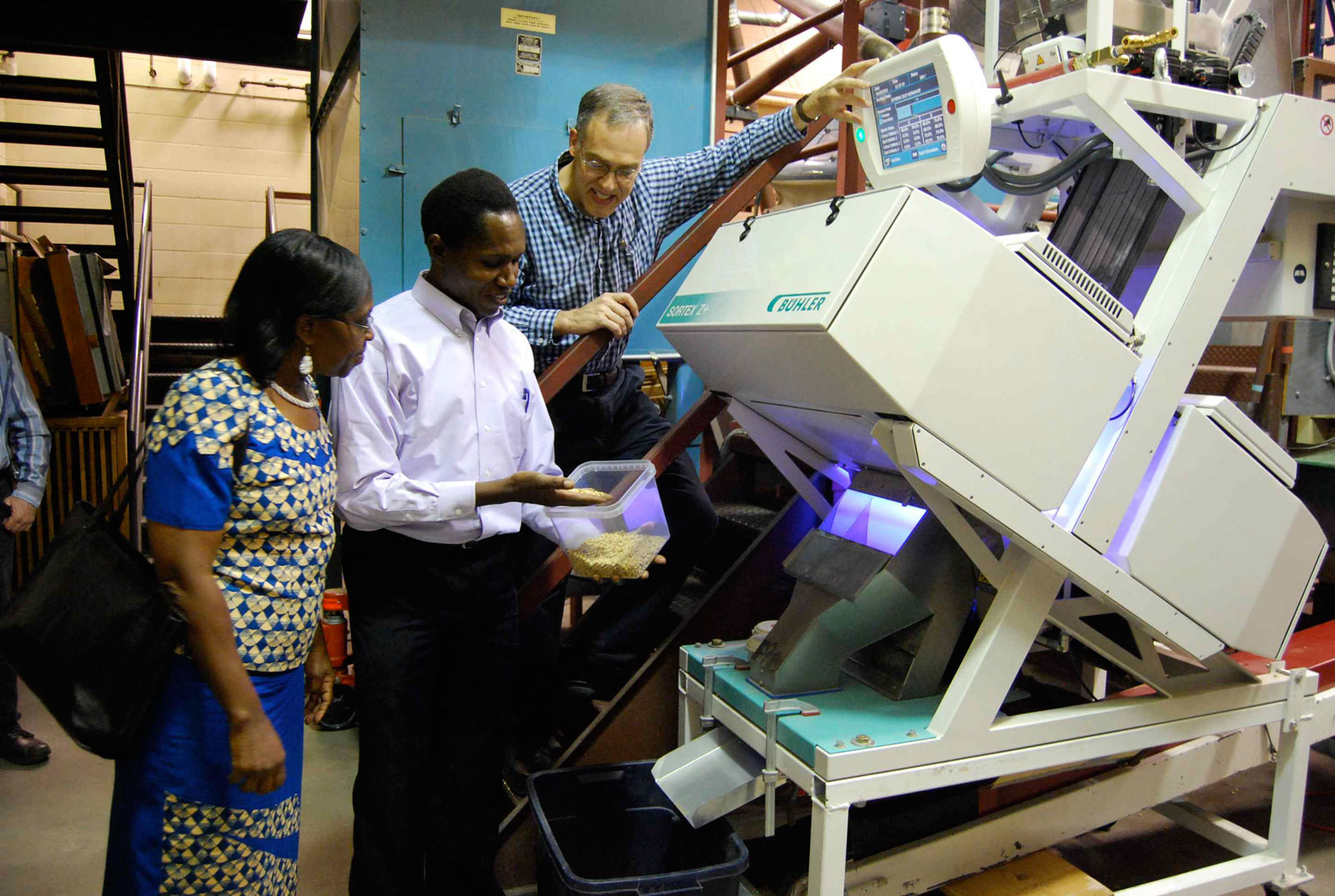
Nurturing Seeds Of A New Africa
When it comes to seeds, Manjit Misra sees parallels between Iowa’s past and Africa’s future.
“Africa has many small seed providers scattered in different parts of the continent, all at different stages of education, training and preparedness to adequately provide high-quality seeds for farmers,” says Misra, director of ISU’s Seed Science Center and holder of the Dean’s Chair for Distinction in the College of Agriculture and Life Sciences.
“It reminds me of how Iowa’s seed industry evolved. We can bring our experience from the past, especially how public-private partnerships developed, and contribute to the future of seed in sub-Saharan Africa.”
The Seed Science Center is partnering with the University of Nairobi, the International Maize and Wheat Improvement Center and private consultants to establish the Seed Enterprise and Management Institute in the Kenyan University’s College of Agriculture and Veterinary Sciences.
The three-year project is funded by a $4.49 million grant from the Alliance for a Green Revolution in Africa, which receives funding from the Bill and Melinda Gates Foundation. The alliance is led by African scientists, economists and business leaders who are working to achieve a food-secure and prosperous Africa through rapid, sustainable agricultural growth based on smallholder farmers. The majority of farmers are women, who produce most of Africa’s food with scarce resources and minimal government support.
“When Dr. Norman Borlaug died last year, his last words were, ‘Take it to the farmer.’ And that’s the biggest problem in Africa,” Misra says. “Our program is facilitating that goal, to build the capacity needed to take science-based information and demonstration to the women planting those seeds.”
“Seed’s at the heart of everything. And the biggest impact we can make is in education and improving infrastructure for seed systems,” he says.
Iowa State and University of Nairobi experts will teach future leaders to enhance seed production and delivery systems within sub-Saharan Africa. They’ll learn how to promote growth and development of the seed industry; how to improve production management and quality assurance; how to facilitate trade; and how to ensure seed is the very best product for farmers.
Participants will get both classroom time and hands-on experiences from national seed agencies, companies and research institutions.
Another thrust will be training plant breeders in seed science, in ways that go beyond variety improvement. “The hope is that more breeders become entrepreneurs, with enhanced knowledge of business, production and policy to make their work more widely available,” Misra says.
During planning for the project, Misra says Namanga Ngongi, president of the Alliance for a Green Revolution in Africa, told him what Africa really needs. “He said, ‘We want a seed center like yours.’” At last year’s World Food Prize events in Des Moines, Ngongi told the assembled audience, “Iowa State’s Seed Science Center is probably the best in the world.”
The Seed Science Center has a global reputation for education and research in seed issues. It is home to the world’s largest public seed testing laboratory, testing more than 300 species and conducting seed health tests for more than 250 pathogens. The center also annually trains scores of leaders and professionals in the U.S. and international seed industries.
The center has conducted projects in nearly 80 countries and is credited for facilitating the harmonization of seed policies in several regions of the world. These efforts help regions overcome challenges that restrict the movement of healthy, high-quality seeds across borders. One effort currently focuses on 19 states in southern and eastern Africa.
Alleviating hunger and poverty in Africa have been goals for many years, but with the Gates Foundation project and other efforts, Misra sees hopeful signs.
“Private foundations and others are once again recognizing agriculture as a solution. All over the world, there’s a realization that food is not just about eating, it’s about improving life conditions. It’s about human dignity,” he says.
Misra came to the U.S. from India nearly 30 years ago when, “we believed the U.S. was out to do good in the world.”
“I feel that spirit returning,” he says. “I sense the realization in Africa that things can change, not only in science, but also at the leadership and practical levels.”
This year the project leaders have conducted training workshops in Africa on seed conditioning and handling, quality assurance and information technology and seed legislation.
“Our method is to bring people together, help them talk about challenges and how to solve them together, all with a respectful attitude,” Misra says. “We work hard to earn their trust. For the state of Iowa, the benefits are clear when you do this kind of work. You develop relationships that may pave the way for new markets and new educational opportunities.”



